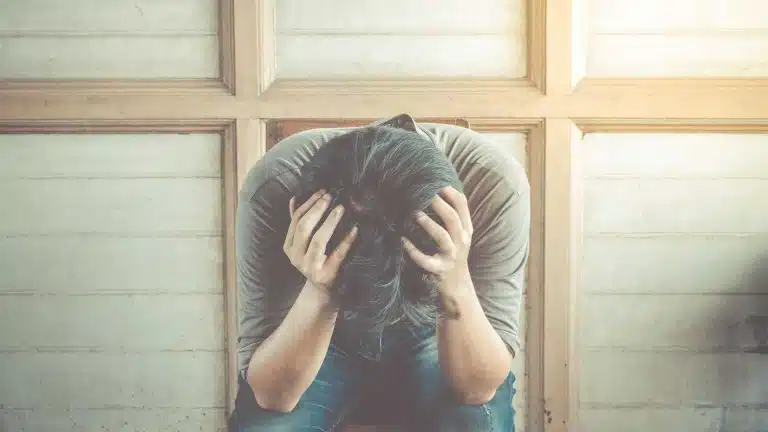Anxiety Disorders & Cocaine Use

The connection between cocaine use and anxiety disorders has been researched by many healthcare professionals over the years. Generalized anxiety disorder (GAD) is more comorbid (happens more often) in people who abuse cocaine compared to people who do not.
The side effects of cocaine, especially on the brain, may contribute to anxiety-like symptoms. Cocaine affects dopamine levels in the brain, a neurotransmitter that is sometimes linked to various anxiety disorders.
Studies have looked at patients who only developed panic disorders after intense or long-term use of cocaine. Panic disorders are a type of anxiety disorder, which adds evidence to the idea that cocaine causes anxiety disorders.
How Cocaine Abuse Can Lead To Symptoms Of Anxiety
Research about cocaine use leading to anxiety has been around since the late 1980s.
Cocaine affects dopamine levels in the brain by blocking dopamine receptors. Dopamine then builds up in the brain, which can have many effects on your mental health, including an increased risk of anxiety.
Symptoms of anxiety that have been linked to cocaine use include:
- panic attacks
- obsessive thoughts or behavior
- physical reactions to a phobia (sweating, feelings of anxiety)
Long-term use of cocaine may put you at an increased risk of anxiety. When taken long-term, cocaine can even change your brain chemistry. Cocaine can be highly addictive even after short-term use, putting you at risk of long-term health risks before you’re aware of it.
Risk Factors For Cocaine-Induced Anxiety
People with a personal or family history of mental health disorders may be at a higher risk for anxiety caused by cocaine. Similar genetics and the environment you were raised in may play a part in this shared risk.
A diagnosis of comorbid anxiety and a substance use disorder may change your potential treatment options. Working with your doctor or clinician about your symptoms can make a difference in the effectiveness of your treatment.
Anxiety Or Drug Use: Which Comes First?
In one Spanish study, 42% of studied patients who engaged in cocaine abuse also had a co-occurring mental health disorder. Anxiety was the second-most common mental disorder in these patients, after depression.
Cocaine use may cause anxiety, but anxiety may also lead to cocaine use.
People with anxiety may turn to substance abuse as a way to self-medicate their anxiety. They may see substances like alcohol, opioids, or cocaine as an escape from the daily struggles caused by their mental health problems.
The high potential for cocaine dependence and addiction often means its downsides outweigh the benefits. Oftentimes, a person with anxiety and cocaine dependence will find that cocaine use did not solve their problems.
Treatment Options For Co-Occurring Cocaine Use & Anxiety
Cocaine is a controlled substance in the United States, and its potential for abuse, dependency, and addiction is well-known. Addiction treatment for cocaine use likely involves coming off the drug safely, while going through therapy and learning skills to avoid future relapse.
Detox
Trying to quit cocaine on your own can also be harmful to your mental health. Cocaine withdrawal can be difficult, painful, and even life-threatening without proper medical help. Detox programs help you manage withdrawal symptoms and prepare for treatment.
Anti-Anxiety Treatments
For cocaine abuse issues that involve anxiety, treatments that target anxiety may also be effective. Anti-anxiety treatments vary widely, and may include taking antidepressants, anti-anxiety medications, cognitive behavioral therapy, and joining a support group.
Dual Diagnosis Programs
Comorbid addiction and anxiety may benefit from cognitive behavioral therapy and medication. These are only a few of the many treatment programs available. Depending on the state of your mental health, you may benefit from an inpatient stay at a treatment facility while you recover.
If you or a loved one are suffering from severe anxiety, cocaine use is most likely not a permanent solution. Cocaine can add anxiety symptoms on top of your existing ones, and has serious health risks such as irregular heart rate, tremors, heart attack, seizure, and even death.
To find the best treatment available for you or a loved one, talk to your healthcare professional or contact us today.
Written by Ark Behavioral Health Editorial Team
©2024 Ark National Holdings, LLC. | All Rights Reserved.
This page does not provide medical advice.
American Journal of Psychiatry - Treatment of cocaine-induced panic disorder | American Journal of Psychiatry
National Institute on Drug Abuse - Cocaine DrugFacts | National Institute on Drug Abuse (NIDA)
PubMed Central - The relationship between anxiety and substance use disorders among individuals with severe affective disorders - PubMed
Scientific Electronic Online Library Brazil - Anxiety symptoms in crack cocaine and inhalant users admitted to a psychiatric hospital in southern Brazil

Questions About Treatment?
Ark Behavioral Health offers 100% confidential substance abuse assessment and treatment placement tailored to your individual needs. Achieve long-term recovery.
100% confidential. We respect your privacy.
Prefer Texting?
Our friendly support team is here to chat 24/7. Opt out any time.







 Learn More
Learn More








